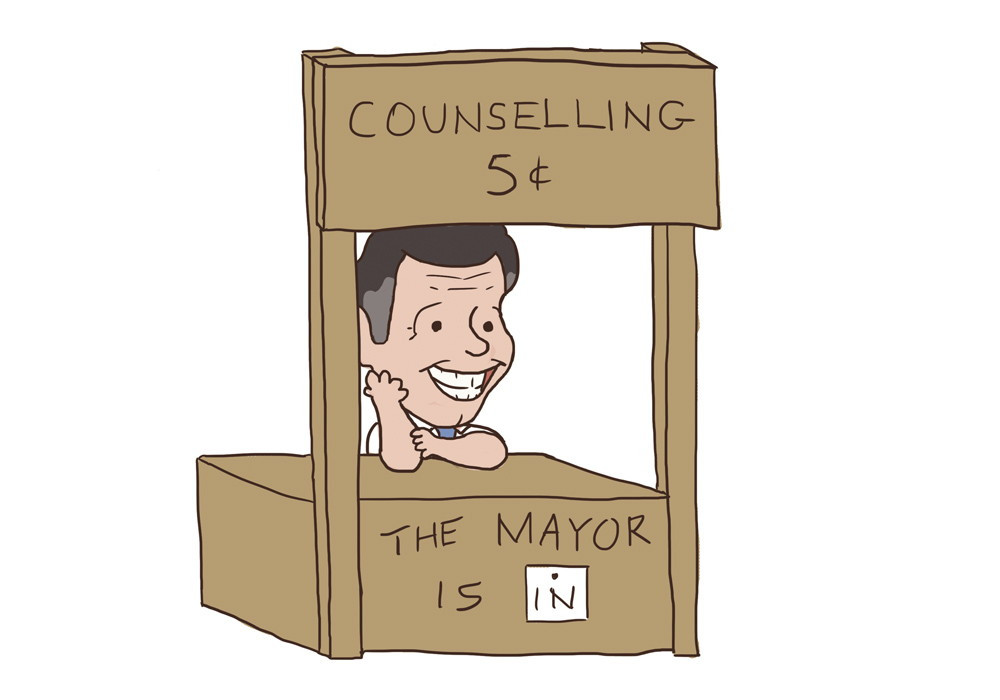Pledges and populations
Multiculturalism at city hall could use a jump-start
Brian Bowman is already breaking new ground as mayor of Winnipeg. At his swearing-in ceremony on Nov. 4, Bowman chose to have the meeting blessed by an Aboriginal elder. Bowman, who is Métis, is Winnipeg’s first Aboriginal mayor, and this gesture is potentially illustrative of a new level of outreach between City Hall and Winnipeg’s minority communities.
Oluwatosin Ajila is the former president of the Association of Nigerian Students at the University of Winnipeg. Ajila describes city hall’s relationship with Nigerian Winnipeggers as “cloudy.”
“There aren’t really any issues I see for the community to complain about,” Ajila says. “At the same time, there hasn’t been much contact with City Hall at all. Most of our contact has been with the provincial government. We’ve had communication with the Minister of Multiculturalism, and MLAs will usually come to our celebrations and say ‘hi.’ In my experience, the province has been more productive than City Hall.”
Nigerian-born Winnipeggers are the city’s fifth-largest immigrant population, and Ajila says he’d appreciate an increased focus on the community.
“I’d like to look into getting an organized place for the Nigerian community, maybe an office, or a space for Nigerian kids and youths to come play and be involved.”
Kevin Sharma, president of the University of Winnipeg Indo-Canadian Students’ Association, says he’s satisfied with city hall’s involvement with Winnipeg’s Indian citizens.
“I’ll usually see City Hall representatives at a majority of the festivals and things that our community usually puts on,” he says. “I have no complaints.”
Like Ajila, Sharma says an increased presence would mean a great deal to people.
“I feel like during some of the festivals and community events, the City’s involvement has been a ‘show your face and leave’ situation. It’d be great if they took a more personal approach. People in the community take great pride when they see city hall representatives come out. They appreciate the effort. I’d like to see them take part, understand what the festival is for, that type of thing.”
Mike Tutthill is the executive director of the Rainbow Resource Centre (RRC), an organization whose mission is to “represent and support LGBTT* individuals, communities and families.” Tutthill says RRC has had little interaction with city hall.
“We’ve applied to the city for funds before, but haven’t received any,” Tutthill says, noting that some individual city councilors have invested in the organization.
Tutthill also feels that increased visibility and dialogue is needed.
“I think there’s room for the City to be more vocal in its support for LGBT citizens and for Pride. Even in smaller cities like Halifax, the City is all over Pride.”
Coun. Mike Pagtakhan (Point Douglas) says he has a healthy relationship with various cultural associations in his ward, and says such organizations shouldn’t be hesitant to reach out to the city government.
“City Hall is a place that supports these organizations, but there are hundreds, and there’s no comprehensive list of them.” Pagtakhan says. “They’re great organizations because they’re working on laser-focused projects, and it’s easy to collaborate and advocate for those types of projects.”
Several organizations, including the Immigrant Centre and the Philippine Canadian Centre of Manitoba, didn’t respond to The Uniter’s requests for comment.
The City of Winnipeg is a sponsor for the Immigrant Centre, 100 Adelaide St. Visit icmanitoba.com for more info on the Centre’s services.
Published in Volume 69, Number 12 of The Uniter (November 19, 2014)








